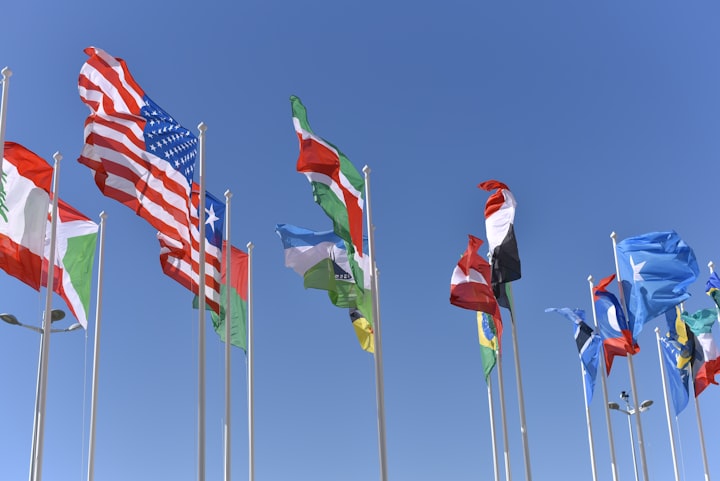Navigating Diversity: Exploring Cross-Cultural Psychology
Understanding the Interplay of Culture, Behavior, and Mental Processes

Cross-cultural psychology is a fascinating field that delves into the ways in which culture shapes human behavior, cognition, and emotions. In an increasingly interconnected world, understanding the complexities of culture is essential for psychologists and researchers alike. This article explores the intricate interplay between culture and psychology, shedding light on the diverse ways in which individuals from different cultural backgrounds perceive the world, interact with others, and experience mental processes.
Cultural Influences on Perception and Cognition
Culture profoundly influences how individuals perceive and interpret the world around them. From basic sensory perception to higher-order cognitive processes, cultural norms and values shape individuals' mental representations and cognitive schemas. For example, research has shown that cultural variations exist in visual perception, with individuals from different cultures attending to and interpreting visual stimuli differently. Moreover, language, which is deeply rooted in culture, influences thought patterns and cognitive processes, shaping the way individuals categorize information and solve problems.
Cultural Norms and Social Behavior
Cultural norms dictate acceptable behaviors within a society and significantly influence social interactions and relationships. What may be considered appropriate behavior in one culture could be perceived as inappropriate or offensive in another. Understanding these cultural nuances is crucial for effective communication and social integration. Furthermore, cultural norms surrounding concepts such as personal space, eye contact, and nonverbal communication vary across cultures and can impact interpersonal relationships and social dynamics.
Cultural Identity and Self-Concept
Cultural identity plays a central role in shaping individuals' sense of self and belonging. It encompasses various aspects, including ethnicity, nationality, language, religion, and cultural heritage. Cultural identity development is a complex process influenced by socialization, acculturation, and intergroup dynamics. Individuals may navigate multiple cultural identities, leading to feelings of cultural ambiguity or biculturalism. Moreover, cultural differences in self-construal—whether individuals define themselves in relation to others or as autonomous individuals—affect self-perception and interpersonal behavior.
Culture and Emotional Expression
Emotional expression is culturally bound, with cultural norms dictating how emotions are experienced, expressed, and regulated. Some cultures encourage emotional restraint and value emotional control, while others emphasize emotional expressiveness and catharsis. These cultural differences in emotional display rules influence individuals' emotional experiences, interpersonal relationships, and coping strategies. Moreover, culture shapes the interpretation of emotional cues and the recognition of facial expressions, contributing to cross-cultural misunderstandings and communication barriers.
Cultural Perspectives on Mental Health
Culture influences beliefs, attitudes, and stigmas surrounding mental health and illness. Cultural factors, such as language barriers, cultural norms, and religious beliefs, can affect help-seeking behaviors and treatment preferences. Additionally, cultural syndromes—patterns of symptoms that are specific to certain cultural groups—highlight the cultural variability in the expression and interpretation of psychological distress. Culturally sensitive approaches to mental health assessment and treatment are essential for providing effective and culturally competent care.
Cross-cultural psychology elucidates the intricate relationship between culture and psychological processes, shedding light on how cultural contexts shape human behavior, cognition, and emotions. This field explores the diversity of human experiences across different cultural groups, emphasizing the need to understand and appreciate cultural nuances in psychological research and practice.
Culture permeates every aspect of human life, influencing individuals' perceptions, beliefs, values, and behaviors. Cultural norms and practices provide a framework for understanding the world and guide social interactions within a community. From communication styles to emotional expressions, cultural influences are pervasive and profound, shaping individuals' identities and shaping their experiences.
One of the fundamental principles of cross-cultural psychology is cultural relativism, which asserts that behavior must be understood within the cultural context in which it occurs. What may be considered normal or appropriate in one culture could be perceived quite differently in another. Therefore, it is essential to approach psychological phenomena with cultural sensitivity and to recognize the diversity of human experiences across cultures.
By studying cross-cultural psychology, researchers gain valuable insights into the universality and cultural specificity of psychological processes. Moreover, this field promotes cultural awareness, empathy, and intercultural competence, fostering understanding and respect for diverse perspectives. As we navigate an increasingly globalized world, the study of cross-cultural psychology becomes increasingly relevant in promoting mutual understanding and collaboration across cultures.
Conclusion
Cross-cultural psychology offers valuable insights into the dynamic relationship between culture and psychology. By examining cultural variations in perception, cognition, behavior, and mental health, researchers gain a deeper understanding of the universal and culture-specific aspects of human psychology. Moreover, cross-cultural psychology promotes cultural awareness, empathy, and respect for diversity, fostering inclusive practices in research, education, and clinical settings. As we navigate an increasingly diverse and interconnected world, the study of cross-cultural psychology becomes ever more relevant in promoting mutual understanding and harmony across cultures.





Comments
There are no comments for this story
Be the first to respond and start the conversation.